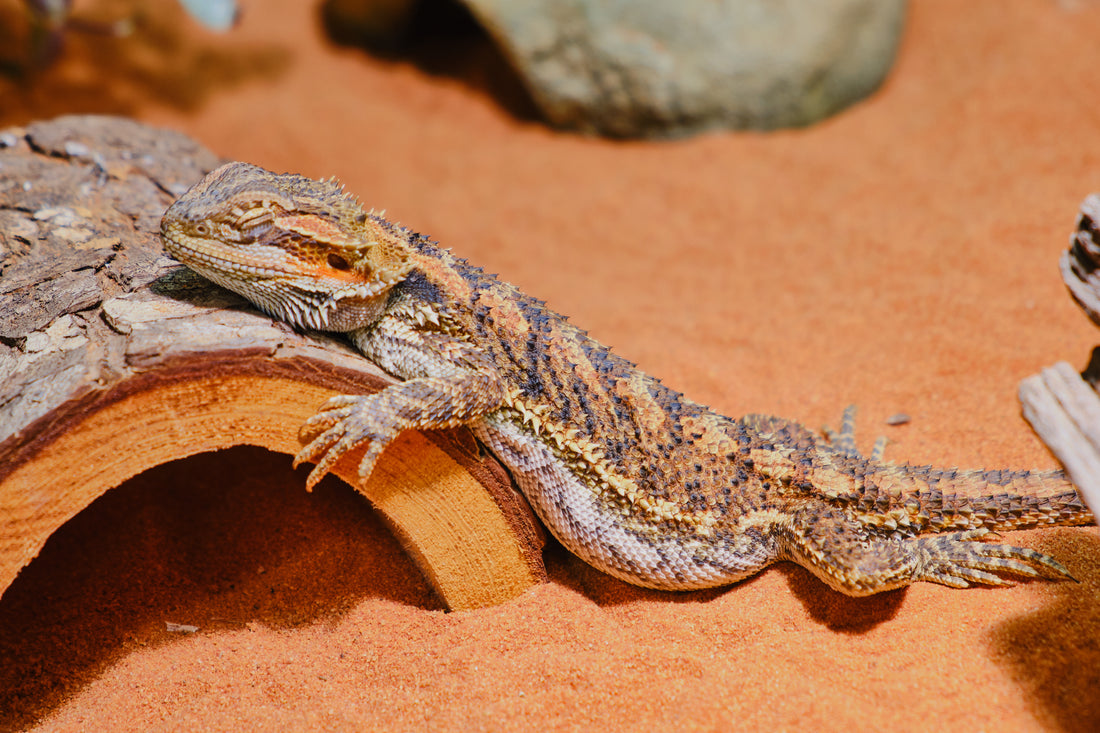As a reptile owner, one of the fascinating natural behaviours you may encounter is brumation. Brumation is the reptilian equivalent of hibernation, during which cold-blooded reptiles enter a state of dormancy to conserve energy during colder months. However, witnessing your scaly companion emerge from brumation can be both exciting and challenging. In this blog, we will explore the essential steps to take when your reptile comes out of brumation to ensure their health and well-being.
- Observation and Patience
When your reptile emerges from brumation, the first thing to do is to observe their behaviour closely. Understand that the transition period might vary depending on the species and the individual reptile. Some reptiles may show signs of activity almost immediately, while others might take several days or even weeks to fully awaken. Avoid handling your reptile excessively during this time, as they might be disoriented or sluggish.
- Provide a Warm and Safe Environment
During brumation, reptiles experience a drop-in metabolic rate and body temperature. As they awaken, they will require a warm and secure environment to regulate their body temperature and feel safe. Ensure that their enclosure's temperature is appropriate for their species, offering a temperature gradient that allows them to move between warm and cooler areas as needed.
- Offer Fresh Water and Nutritious Food
Hydration and nutrition are crucial after brumation. Provide a shallow dish of fresh water and monitor your reptile to ensure they drink adequately. However, refrain from force-feeding or overwhelming them with food initially. Start with small, easily digestible meals and gradually increase the quantity as they show more appetite and activity.
- Monitor Weight and Health
Keep a close eye on your reptile's weight and general health during this time. Weight loss during brumation is typical, but rapid or excessive weight loss could indicate underlying health issues. If you notice any abnormalities, such as lethargy, difficulty breathing, or changes in behaviour, consult a veterinarian experienced in reptile care immediately.
- Encourage Gradual Activity
As your reptile becomes more active, encourage them to move naturally within their enclosure. Climbing branches, basking under their heat lamp, or exploring their environment will help them regain their strength and stimulate their appetite. Avoid sudden changes in their surroundings, as this might stress them out during this delicate period.
- Minimize Stress
Coming out of brumation can be stressful for reptiles, so it's essential to create a calm and quiet atmosphere for them. Limit disturbances in their enclosure and reduce handling to a minimum until they fully acclimate to their regular routine.
- Regular Health Check-ups
After brumation, it's a good idea to schedule a check-up with a reptile veterinarian. A professional examination can detect any underlying health issues and ensure your reptile is in optimal condition. Additionally, the veterinarian can provide guidance on proper nutrition and husbandry based on your reptile's specific needs.
Experiencing your reptile's awakening after brumation is a remarkable aspect of being a reptile owner. By observing and taking the necessary steps to support their transition, you can ensure that your scaly companion emerges healthy and ready to thrive. Patience, a warm environment, proper hydration, and gradual re-introduction to their usual activities are key factors in helping your reptile embrace the awakening successfully. Remember, if you ever have concerns about your reptile's health, don't hesitate to seek professional advice from a veterinarian who specializes in reptile care.

